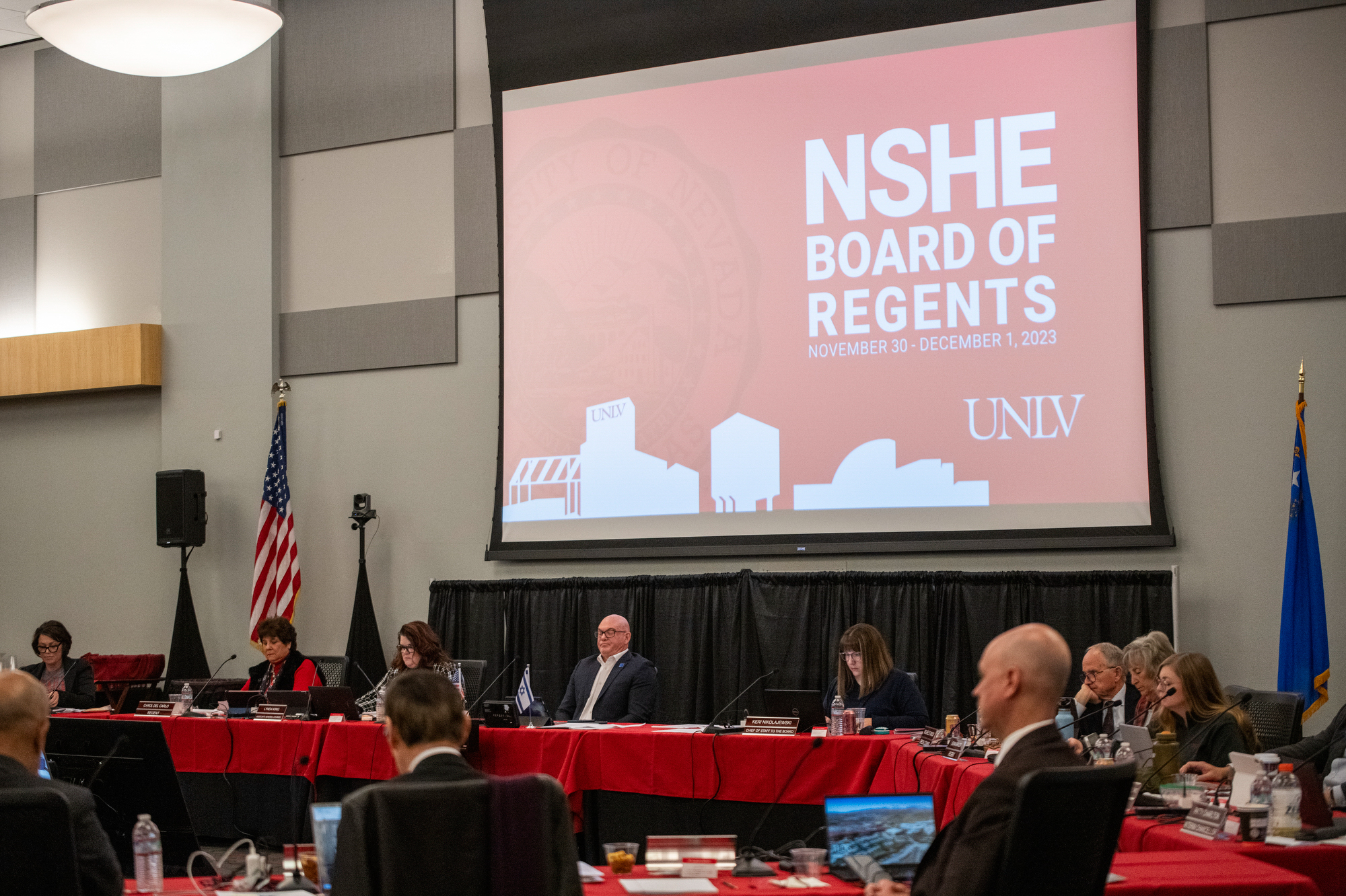Despite two failures in four years at the ballot box, supporters of 2024’s Question 1 say they’re not giving up the fight to defang the Nevada System of Higher Education’s Board of Regents.
Voters rejected the ballot question — which would have removed state constitutional references to the elected board overseeing the state’s colleges and universities and required regular independent audits — by nearly 10 percentage points (or more than 123,000 votes out of more than 1.3 million cast). A similar measure failed on the 2020 ballot by a much narrower margin.
Maureen Schafer, executive director of a Council for a Better Nevada (CBN) a philanthropic advocacy group long critical of the regents and supportive of both ballot measures, did not rule out support for another ballot question but noted that she partially attributes Question 1’s failure to the fact that it came during a presidential election year, arguing that voters were less likely to be interested in the initiative on such a crowded ticket.
“What I can say is the early discussions have said that we don’t want the ultimate question, which would need to pass two legislative sessions, to land on a presidential ballot, so you can kind of do the math from there,” she said. “And we would need to confer with our legislative colleagues who have a large say in this. They’ve been with us for two questions at this point, and they believe in this as much as we do.”
Although the ballot question would have only removed the constitutional guarantee of the board’s existence and not repealed any other existing laws, such as the current process for electing regents, it marked the latest tension point between Nevada lawmakers and the Board of Regents.
In recent years, the board has been involved in numerous controversies, blamed for mishandling public funds and the resignation of former UNLV President Len Jessup. Some legislators and lobbyists blame the board for Nevada’s educational problems, whose higher education system ranks 42nd in return on investment, and claim that many board members are underqualified for the job.
The current Chairwoman Amy Carvalho and Vice Chairman Jeffrey Downs declined interview requests. In a statement to The Nevada Independent, Elizabeth Callahan, a spokesperson for the Nevada System of Higher Education said “we look forward to partnering with the legislature in the upcoming session as we continue to focus on creating pathways for success, developing partnerships that benefit our state, and ensuring that our institutions are places where students thrive and innovation flourishes.”
In a hearing during the 2023 legislative session, then-board Vice Chair Joe Arrascada likened the push to resurrect the failed Question 1 to 2020-style election denialism.
“This new resolution is blatantly questioning the voters’ will,” Arrascada said in 2023. “To many of your constituents, this do-over is similar to an election denier of the same 2020 cycle.”
Nevada is the only state that has a single oversight board for all of its higher education institutions — regardless of the school’s speciality — and that elects its members instead of them being selected through gubernatorial or legislative appointment. Along with the chancellor (which the regents appoint), the board is responsible for approving new programs, the financial stability and selecting the campus leaders of Nevada’s eight higher education institutions.
“The Board of Regents gets criticized because they consider themselves a fourth branch of government that is autonomous from checks and balances,” said Warren Hardy, a former Nevada state senator now turned political consultant, who has long favored increasing legislative oversight over the Board. “Every other branch of government has some kind of a checks and balances, and, in this case, the Legislature approves the budget, but it has very little official input into policy or what happens.”
There are, however, a few other ways to minimize the group’s power besides a ballot initiative. Last year, for example, Gov. Joe Lombardo signed a law that shrunk the 13-member board to nine people and established four-year term limits.
Campaigning on the ballot question was relatively subdued, especially compared with activity on other questions on the 2024 ballot. A PAC supportive of the measure reported raising $135,000 over the past two years, including $85,000 in financial and in-kind donations from Council for a Better Nevada. The PAC spent $124,000 over the last two years, primarily on polling and legal fees.
Opposition to the measure was less organized, though the Washoe County Republicans opposed it and said it would “remove the right of citizens to elect the University of Nevada Board of Regents and allow the state legislature to control the state universities.” Hardy, however, contended that such framing was misleading, although he acknowledged that it was “something that could have happened eventually.”
Despite these defeats, Schafer, who was the former chief of staff for the UNLV’s Kirk Kerkorian School of Medicine, said that she plans to continue working on initiatives to nullify the board’s constitutional status and has begun talks with colleagues about its future.
Schafer said that Council for a Better Nevada is “agnostic” to further restructuring beyond the ballot initiative at this point, and remains optimistic about some of the more recently elected regents, such as Heather Brown and Carlos Fernandez. Hardy also pointed to the appointment of former state Sen. Pete Goicoechea (R-Eureka) as a well-qualified new regent and said there is more communication going on — “which is a good start.”
But despite the Board of Regents holding on to their constitutional authority, Schafer and Hardy said they feel it is necessary to continue advocating for change.
“Do we just quit? No, because we still have to make higher education accessible, available and a place where we can go steal college leaders, college professors and people from across the country who want to come to Nevada and use their higher education talent for our kids and our students and our economy,” she said.

